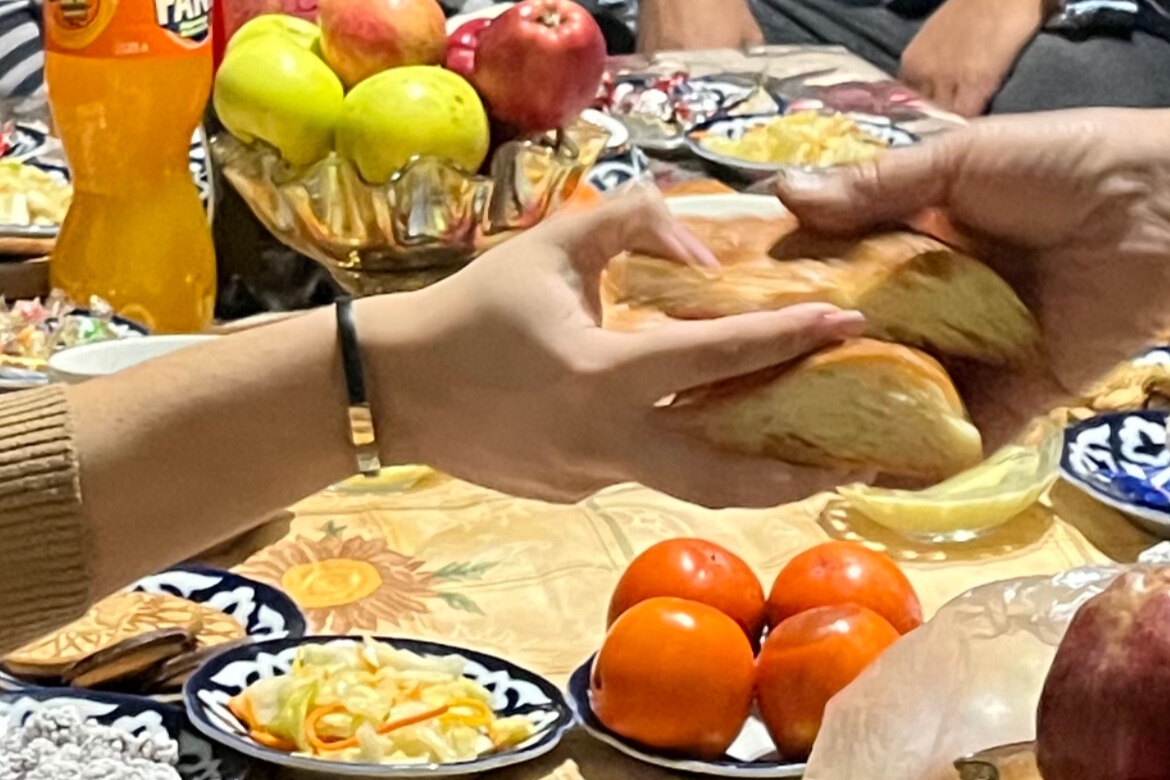Breaking the law by breaking bread
They are gathered in a home to sing, break bread, share faith stories, and pray. But it is forbidden.

Religious activities outside approved places of worship are prohibited
Originally published in Magasinet Stefanus February 2024.
We have been invited to a house fellowship in a city in Central Asia. The group, which has been meeting for years, belongs to a registered and legal evangelical church. However, religious activities outside approved places of worship are prohibited. If the police comes to the house fellowship, they will be fined.
Three generations have gathered on the floor around a generously set dining table; Women, men, and children all together. In their traditional culture, the women would have stayed in the kitchen.
'We teach new Christians with Muslim backgrounds that women and men are equal,' says a woman who was here as a missionary when the house group was started.
The struggle for a graveyard
They share faith stories. A woman recounts the struggle to cope when her husband left her and their six children. Her sons-in-law pressured her to return to Islam.
'A couple of times, I've considered giving up, but I hold on,' she says.
Another woman tells how the mullah refused her mother a burial ground because she had become a Christian. And the church had to find another place to bury her mother. Churches are now trying to secure a common Christian burial ground.
Then the main course, plov, is placed on the table. Long-grain rice cooked with onions, broth, and vegetables, served with meat of lamb. Two and two eat together and share a plate.
After the plov, the father of the house brings out the drum. He sings about God's presence and prays that more people can find God and experience love and grace.
Cover story
"If the police come, we will explain that we are friends eating together," the pastor explains.
"Can you have Bibles here?"
"A private Bible in the home is allowed. But most people have the Bible on their phones, so they are not visible."
"Has the police ever come?"
"No, and we have never been fined. But unfortunately other fellowships here in the city have had police visits and been fined."
Children are part of the house group. Although it is forbidden to bring those under 18 to church or provide them with religious education outside the home. The same applies in mosques.
"Officially, we don't do anything for those under 18. But we bring the children when we go to church. They can't be home alone and are gathered in a separate building. If the police were to come, we would explain that the children are playing. Police often check mosques during Friday prayers."
It is also prohibited to have summer camps.
"But we have camps for youth, far outside the city. This year, 50 came. We are cautious, and we trust in God and pray for protection," says the pastor.
Meeting with Women
In this country, the law prohibits religious organizations from conducting outreach activities. However, the church organizes meetings with women in the homes.
"We teach them to make a new dish. And while the food is in the oven, the women share their faith stories with those they have invited. They tell stories of healing," says Nadi, who leads family and women's work.
Testimonies make an impression. Nadi, whose real name is not used, tells of a family where one of the children, an 18-year-old, had Down syndrome. No one wanted to be with him. "They were very happy when we shared a meal with the whole family."
New people come to faith in house fellowships. "They join the church afterwards," says Nadi.
The neighborhood knows about the church. "Some neighbors come to ask for prayer for a sick relative after they have been to both the doctor and the mullah."
New Mosques
New mosques are being built in the city with money from countries like Qatar. "We Christians must become even more active when Muslims become more active," says Nadi.
Written by: Johannes Morken
Stefanus Alliance: "Transformation of Lives"
For three years, this church in Central Asia has received support for running annual conferences from Stefanus Alliance. The conferences are for pastors' wives and other women with heavy responsibilities in churches and family life.
"Lives were transformed," says Nadi about a previous conference, which was a pilot project with support.
"We want to stand on our own feet. But we can't arrange the conference without help. Thank you for caring about women in a distant land. You have the choice to pass by or stop and help a stranger. You stop and help. We are one body in Christ."